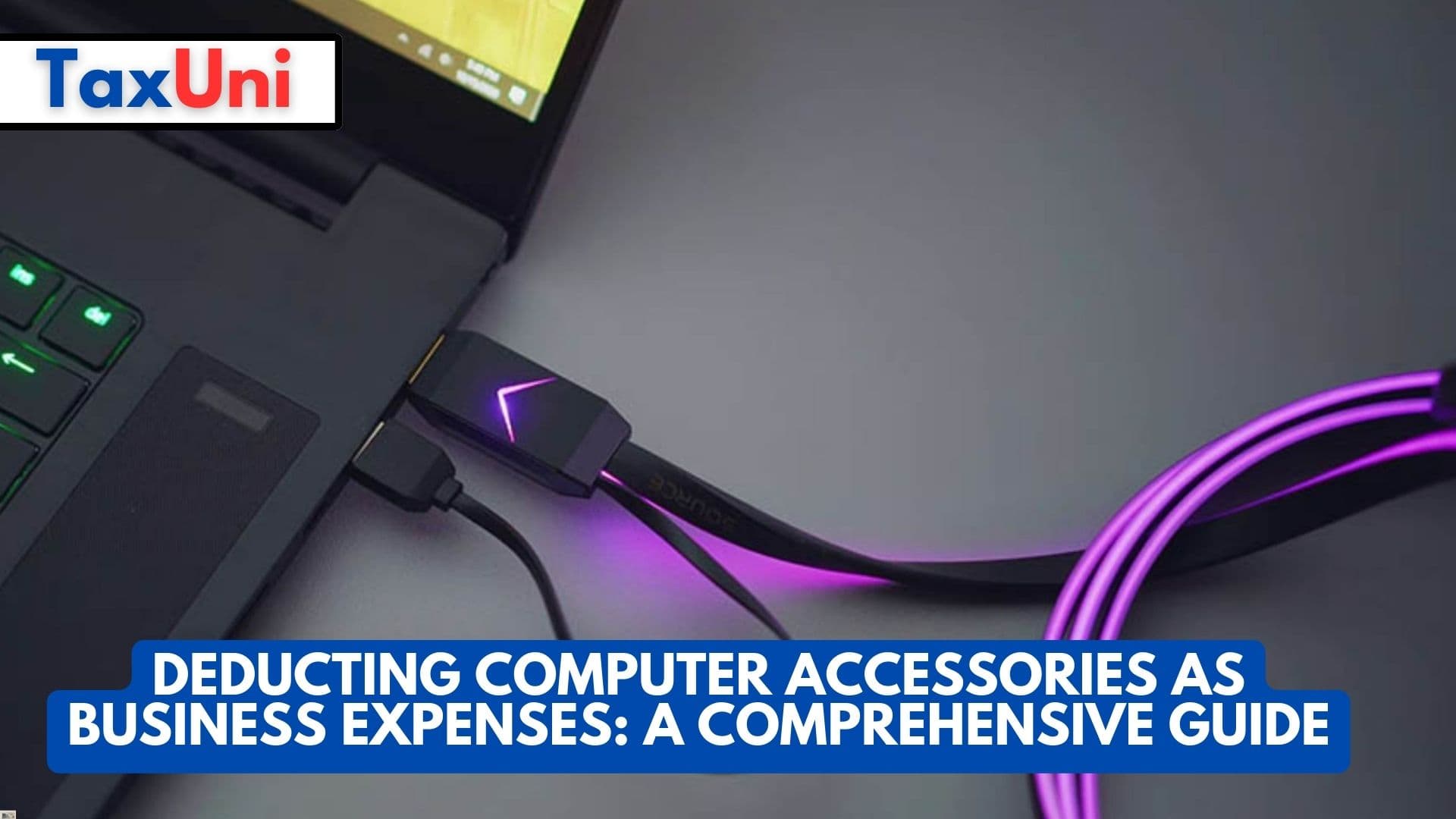Deducting Computer Accessories as Business Expenses: A Comprehensive Guide
Learn how to save on taxes by deducting computer accessories used for business. Whether you’re a freelancer or small business owner, this guide simplifies the rules and helps you maximize your deductions.

Contents
Running a business in today’s digital age often means investing in technology—and the good news is that deducting computer accessories as business expenses can significantly reduce your tax burden. Whether you’re buying printers, scanners, external hard drives, or even software, these items can qualify as deductible expenses if they are primarily used for business purposes. Thanks to provisions like Section 179 and bonus depreciation, you might even be able to write off the full cost of these purchases in the same year they’re made. For freelancers, small business owners, and anyone managing a home office, understanding how to claim these deductions is essential for keeping your finances in check while staying compliant with IRS regulations.
What Qualifies as a Deductible Computer Accessory?
Computer accessories are broadly defined as any peripheral or hardware that supports your computer’s functionality. Common examples include:
- Printers and scanners
- External hard drives and storage devices
- Monitors and docking stations
- Keyboards, mice, and other input devices
- Software programs for business use (e.g., accounting software)
To qualify for a deduction, the accessory must be used at least 50% of the time for business purposes. If it’s used partially for personal reasons, you can only deduct the percentage of its use that applies to your business.

Key Tax Provisions to Leverage
- Section 179 Deduction
- Section 179 allows you to deduct the full cost of qualifying equipment (including computer accessories) in the year it’s purchased.
- The accessory must be used more than 50% for business purposes.
- Bonus Depreciation
- If Section 179 doesn’t apply or you prefer another option, bonus depreciation lets you deduct a large portion of an asset’s cost in the first year.
- This is especially useful for items that don’t meet the 50% usage threshold but are still used partially for business.
- De Minimis Safe Harbor Election
- For accessories costing $2,500 or less, this election allows you to expense them immediately without depreciating over time.
Mixed-Use Accessories: How to Handle Them
If you use an accessory both for personal and business purposes, you’ll need to calculate its deductible percentage. For example:
- If a $1,000 monitor is used 70% for work and 30% for gaming or streaming movies, you can deduct $700 (70%).
Maintaining clear records of usage—such as a logbook or time-tracking software—can help substantiate your claims if audited by the IRS.

How to Claim These Deductions?
- For Small Business Owners: Report these expenses under “Assets/Depreciation” on your tax return or use Section 179 if applicable.
- For Self-Employed Individuals: Use Schedule C (Profit or Loss from Business) to list these deductions under “Other Expenses.”
- For Home Office Users: Ensure that your home office qualifies under IRS guidelines before claiming deductions related to it.
Common Mistakes to Avoid
- Failing to Meet Usage Requirements: Accessories must meet minimum business-use thresholds (usually 50%) to qualify for certain deductions like Section 179.
- Neglecting Documentation: Always keep receipts and records of purchase dates and usage percentages for each accessory.
- Overestimating Business Use: Claiming excessive usage percentages without proof could trigger an audit.
When Should You Consult a Tax Professional?
While many deductions can be handled independently using tools like TurboTax or QuickBooks, consulting a CPA or tax advisor is wise if:
- You have substantial tech-related purchases exceeding $2,500.
- Your accessory usage involves complex mixed-use scenarios.
- You’re unsure about eligibility under specific tax provisions like Section 179.

FAQs
Can I deduct accessories purchased before starting my business?
No, only items purchased after establishing your business are eligible for deductions.
Do software subscriptions count as deductible expenses?
Yes! Software used primarily for business purposes qualifies as a deductible expense under most IRS guidelines.





